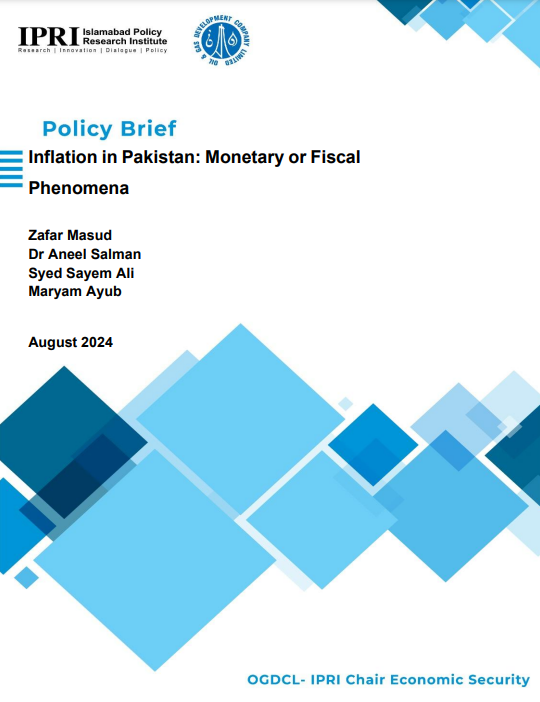Previous: Overview of Inflation Dynamics of Pakistan — IPRI Policy Brief Pt 3
Monetary Policy amid Post-COVID Inflation
Post COVID, high global prices increased inflation and trade deficit in Pakistan. Therefore, during the first half of FY22, SBP decided to tighten the monetary policy by increasing the policy rate to 9.75%. Headline inflation rose to 11.5% and the trade deficit accounted for USD 5 billion. 1
Inflation expectations elevated because of an increase in 3 categories: food, energy, and Non-Food Non-Energy. However, increased energy prices majorly raised inflation. Moreover, the government borrowed Rs 474.9 billion in Q2-FY22. 2
Amid increased inflationary pressures and worsening current account the SBP continued with tight monetary policy by increasing the policy rate to 22% in FY23. 3 Elevated inflation expectations, along with domestic supply-side factors and surpassing gas prices contributed to 3.2% to the 29.2% y-o-y inflation.
Despite the significant decline in the current account deficit, strict external financing conditions resulted in a reduction in SBP reserves to USD 9 billion in mid-July FY2022. 4 In FY2023, the government borrowing from banks increased amounting to Rs 309.8 billion reflecting large fiscal deficits and inadequate external flow.
The impact of global supply shock pushing up the levels of inflation was further amplified by domestic factors.
Firstly, the July 2022 outbreak of massive floods significantly damaged agricultural products, compounding the effect of high global commodity prices.
Secondly, the increased electricity tariffs as a result of fiscal measures resulted in increased energy inflation. 5
Finally, the impact of tight monetary policy lowered global commodity prices, and improved domestic agriculture output resulting in cooling down the food and core inflation and improved the inflation expectations of consumers and businesses.
However, the monetary policy continued its stance of maintaining the tight monetary policy keeping the policy rate maintained at 22% instead of moving in the direction of inflation expectations.
In June 2023, the stand-by agreement by the IMF lowered the risk attached to the external account deficit. Simultaneously, a reduction in oil import volumes, improved domestic crop production and a drop in global oil commodities resulted in a significant drop in imports. 6
In the last Monetary Policy Committee held on June 10, 2024, SBP reduced the policy rate for the first time keeping it constant for 2 years to 20.5% from 22%. The rate of inflation was reduced to 11.8% for May 2024 and inflation expectations also reduced significantly. 7
Up Next: Fiscal Stance of Government in Recent Inflationary Episode — IPRI Policy Brief Pt 5
Inflation in Pakistan: Monetary or Fiscal Phenomena
IPRI — Islamabad Policy Research Institute
Policy Brief by
- Zafar Masud
- Dr. Aneel Salman
- Syed Sayam Ali
- Maryam Ayub
August 2024
OGDCL – IPRI Chair Economic Security
